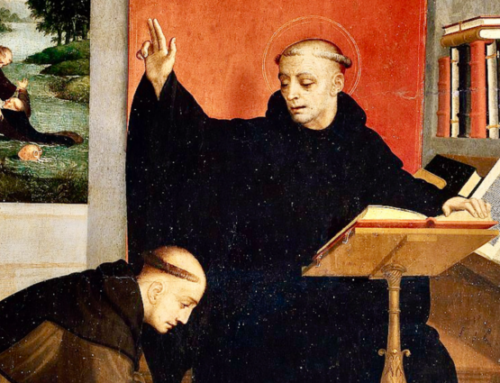I am honored to be asked to say a few words about the educational project that we all care so deeply about: the education of our citizens in the arts of freedom—the education needed to make our lives worth living and our American Republic worth loving.
But before I do, I wish to remind you of something most of you already know—that you have a real treasure in your President, Winston Elliott. He has undertaken with energy and thoughtfulness the responsibility of educating many of tomorrow’s leaders in the foundations of our Republic. And he has done so in a generous spirit of friendship with others who share his conviction that only a liberal education—an education in just those arts of freedom—can secure one’s happiness, the pursuit of which is the birthright of every American.
Your online journal, The Imaginative Conservative, is a resource for all of us (some million-plus readers now) who seek compelling, clear, and thoughtful essays on politics, economics, culture, literature, and education. But Winston and his lovely wife, Barbara, have also partnered with others to help bring the teaching of foundational texts in American democracy to public school teachers. They worked with St. John’s to host an educational project for teachers in the study of Alexis De Tocqueville’s Democracy in America. We worked with Winston in a program hosted at Grand Valley State University in Michigan considering the question whether liberal education has become too politicized. And The Imaginative Conservative has sponsored programs at the CiRCE Institute to provide classical educational offerings to parents and educators of pre-collegiate students.
In other words, the educational reach of the Free Enterprise Institute is far, wide, active, and effective in Winston’s capable hands.
I opened my remarks with reference to the importance of a liberal education to the happiness of the individual and the strength of our nation. Let me elaborate. Every college or university in this country that cares about such an education is concerned with a few key elements: the tradition that gave rise to our great Republic; the great works of literary imagination that have enriched our civilization; and the quality of the communities of learning that we shape on our campuses.
We remind ourselves of this each year at St. John’s College by sharing a toast with our graduating seniors to the four republics to which we belong and by which we live. I would like to give you a modified version of this toast, as it speaks to the character and underlying value of the liberal education championed in many respects by both my college and The Imaginative Conservative. We do not have with us any Champagne this morning, but you have your coffee or tea, and I invite you to drink to these republics with me.
We drink first to the Republic of Letters.
This Republic includes the books and authors that students and faculty read together at any college that requires the study of great works of literary imagination. From Plato and Aristotle to Plutarch and Thucydides, The Bible and Aquinas to Shakespeare and Milton, Euclid and Ptolemy to Descartes and Galileo, Adam Smith and the Federalist Papers to Tocqueville and Melville, Bach and Mozart to Verdi and Wagner, Einstein and Heisenberg to Watson and Crick, the works of these authors span many centuries. The older ones have survived the test of time because they are fundamental to understanding our humanity; they are the building blocks and cornerstones of the humanities, arts and sciences. The newer ones test our ability to think afresh about new discoveries that will cast a new light upon such deeply human questions as, What is this world I have been born into? What is my place within it? and What am I meant to do with my life?
The Republic of Letters is a beckoning republic, welcoming every would-be immigrant who is fleeing narrow-mindedness and willing to engage in serious dialogue across all sorts of boundaries: disciplinary, national, cultural, and religious.
This Republic is always timely because the works it includes are timeless, and therefore also strangely contemporary. When St. John’s College was founded in 1696, John Locke was revising his third edition of the Treatise on Civil Government; Newton was halfway between his first and second editions of the Principia; Milton’s Paradise Lost had been published less than 30 years before, and his Paradise Regained was appropriately published in the same year Lord Baltimore first proposed the establishment of the college in Annapolis; none of the nation’s so-called founding fathers had yet been born; and more than half the works on our reading list were still to be composed. St. John’s has proved for centuries that it is a true contemporary of its books and authors.
We drink next to The Republic of Plato.
This text establishes the model for liberal education. It teaches us what it might mean to be chained in our own personal caves and how we might be freed from those chains and dragged out into the light of the sun to see things as they truly are. This book articulates the problem of what it means to be a republic, one that must support a kind of dialectical interplay between private interest and the common good—perhaps even a tension between the two that cannot ever quite be reconciled.
In the third place, we drink to the Republic of the United States of America, whose foundation in freedom grounded in law has made it possible for colleges dedicated to cultivating the arts of freedom to thrive since the nation’s founding.
We owe this republic a debt of gratitude for our very freedom to think and speak critically about it. We may not owe it our love, but many of us surely do love it for the freedom we enjoy to express our hopes and dreams and the opportunities open to us to realize them.
I am reminded every day when I head to my office of the inscription at the entrance to the building of the immortal words of our National Anthem penned by a St. John’s alumnus, Francis Scott Key, also the founder of our alumni association. We are the site of the monument raised in memory of the French soldiers who died in the service of our new republic during the American Revolution. We are the keeper of the State of Maryland’s official replica of the Philadelphia Liberty Bell. Maryland signers of the Declaration of Independence served on our governing board when the College was chartered after the founding of our new republic. George Washington himself sent his stepson to St. John’s. We belong to this American republic and it belongs to us.
And lastly we drink to the Republic of St. John’s College and to all those colleges that have established communities of learning in which students come to realize through conversation and study together that learning somehow belongs both to each individual separately and also to all of them together. The early opinions formed and the final judgments made belong to each individually, yet the conversation and inquiry among fellow learners are a shared experience and a genuine common good. What we have in common are things of the intellect, imagination, and spirit that grow stronger for their being shared with others who are pursuing with us those good, true and beautiful things that are the object of our communal search and the source of friendships that will last a lifetime.
Those are the toasts. Now let me close on a note of gratitude.
It is the project of all of us in higher education who care about our students that we give them the tools they require to struggle with the questions in life that will free them to make lives worth living, lives with satisfying vocations, lives that belong to them because they know who they are and what they aspire to do to make this a better world for themselves and others.
It will forever be our friends, like you here, who give their love, encouragement and support to each succeeding generation of students that they may enjoy the fruits of this gloriously human project which we call a liberal education. And why? Because you too have come to know that this is what is needed to sustain a nation devoted to the life, liberty and pursuit of happiness of each of the citizens of this great republic of ours. Thank you for this gift to the spirit of freedom.
This essay was originally given as an address at the Free Enterprise Institute’s 38th Founder’s Day Breakfast (2014).







Dear Chris, I love this piece. Not surprisingly. I’d like to make you Pope of the liberal arts. Interestingly, I think this is the single most important divide between humanists and Straussians. Here’s Strauss on the matter, 1940:
“The Republic of Letters indeed lacks the narrowness of the sect: it embraces men of all philosophic persuasions. But precisely for this reason, the first article of the Constitution of the Republic of Letters stipulates that no philosophic persuasion must be taken too seriously or that every philosophic persuasion must be treated with as much respect as any other. The Republic of Letters is relativistic. Or if it tried to avoid this pitfall, it becomes eccentric.”